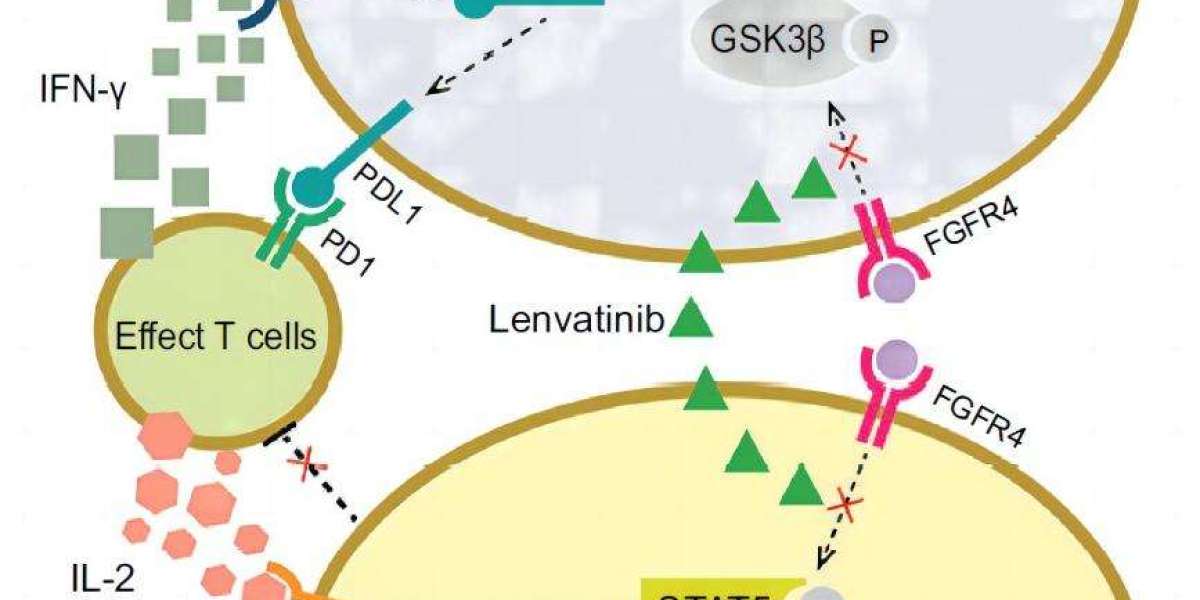Lenvatinib mesylate, a seemingly inconspicuous name, carries within its chemical structure a powerful story of scientific triumph and hope in the fight against cancer. This Active Pharmaceutical Ingredient (API) is the heart of several life-saving medications, offering targeted therapy for a range of malignancies. Understanding the journey of lenvatinib mesylate, from lab bench to patient benefit, paints a remarkable picture of the dedication and innovation fueling advancements in cancer treatment.
A Targeted Weapon in the War on Cancer:
Lenvatinib mesylate belongs to a class of drugs called multi-kinase inhibitors. These drugs work by precisely targeting and blocking specific enzymes called kinases, which play a crucial role in cancer cell growth and survival. Lenvatinib particularly targets kinases involved in the formation of new blood vessels (angiogenesis), a process essential for tumor growth and spread. By blocking these kinases, lenvatinib mesylate essentially cuts off the tumor's supply lines, hindering its ability to thrive and expand.
From Concept to API: A Symphony of Chemistry:
The synthesis of lenvatinib mesylate is a complex dance of chemical reactions, demanding meticulous control over temperature, pressure, and reagents. Skilled chemists orchestrate a series of transformations, each step carefully monitored and optimized to ensure the purity and potency of the final product. Stringent quality control measures remain ever-present throughout this process, guaranteeing the API meets the highest standards for safety and efficacy.
Transforming API into Medicine: Delivering Hope to Patients:
Once synthesized and purified, lenvatinib mesylate API becomes the heart of various medications. Formulators combine it with excipients like stabilizers and buffers, creating oral capsules or injectable solutions tailored for specific cancer types. Rigorous clinical trials meticulously evaluate the safety and effectiveness of these medications before they reach patients.
A Spectrum of Impact: Battling a Range of Cancers:
The impact of lenvatinib mesylate extends far beyond the realm of chemistry. It has emerged as a vital weapon in the fight against several cancers, including:
· Radioiodine-refractory differentiated thyroid carcinoma: In advanced cases where standard treatment fails, lenvatinib mesylate offers a powerful tool to control tumor growth and improve patient outcomes.
· Hepatocellular carcinoma: For this aggressive liver cancer, lenvatinib mesylate provides a much-needed option for patients with limited treatment options.
· Endometrial carcinoma: In advanced stages of this uterine cancer, lenvatinib mesylate demonstrates promising results in combination with other therapies.
Looking Ahead: A Future of Continued Hope:
Research continues to explore the potential of lenvatinib mesylate in other cancer types, offering a glimmer of hope for even more patients. Advancements in manufacturing technology are also being pursued, aiming to improve accessibility and affordability of this life-changing therapy.
In conclusion, the story of lenvatinib mesylate is a testament to the tireless efforts of scientists, chemists, and medical professionals in the ongoing battle against cancer. It is a story of precision, dedication, and unwavering commitment to delivering hope and healing to those who need it most. As research continues to unlock the full potential of this remarkable API, one thing remains certain: the fight against cancer has a powerful new ally in its arsenal.








